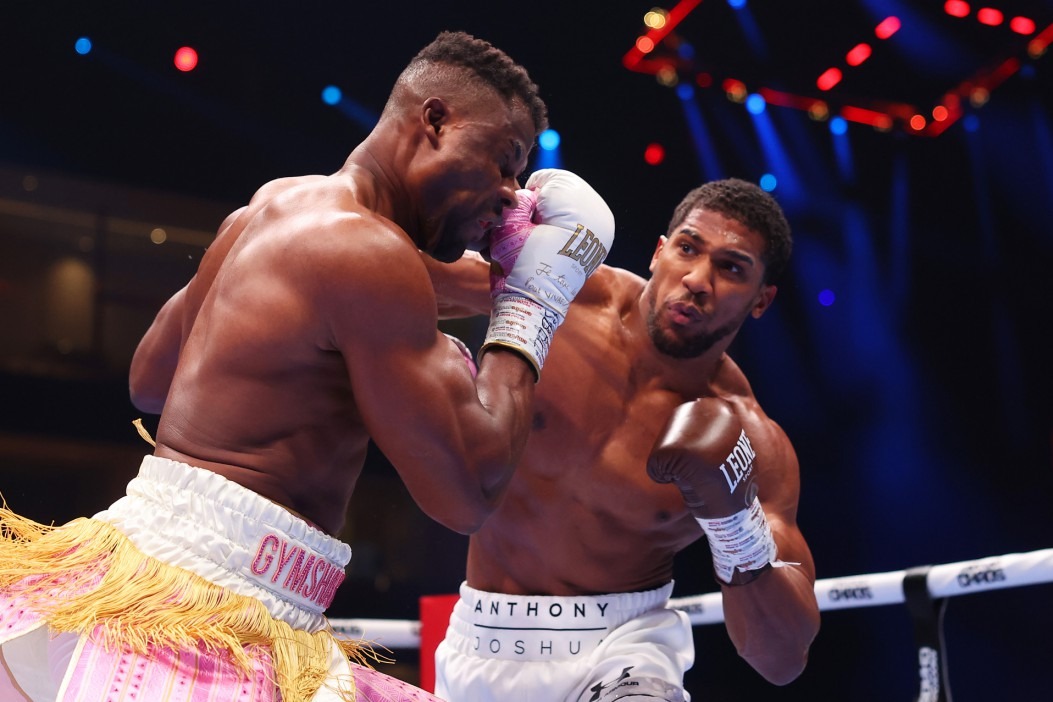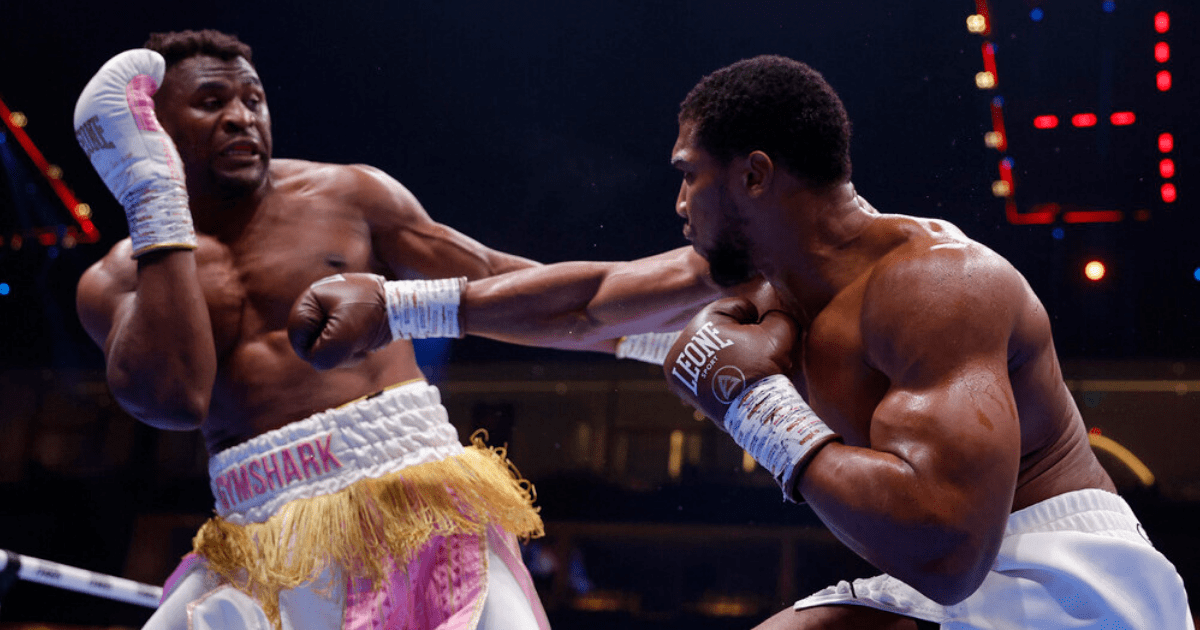Joshua's Career Resurgence
Anthony Joshua is back in the heavyweight title picture after a ferocious finish of Francis Ngannou in Saudi Arabia. With fans eager for his next fight, let's look at the potential opponents lining up to face the former unified champ.
Filip Hrgovic
Croatian clubber Filip Hrgovic is the mandatory challenger for the IBF heavyweight title held by Usyk. Joshua is ranked No.3 in the IBF rankings, making a fight between him and Hrgovic a possibility if the title is vacated.
Joseph Parker
Former WBO champion Joseph Parker has rebuilt himself with five wins on the bounce, including a victory over Deontay Wilder. A rematch with Parker, who Joshua beat six years ago, could be a good test for AJ.
Dillian Whyte
Dillian Whyte, cleared of any wrongdoing, could be in line for a third showdown with Joshua after his fight with Christian Hammer. A trilogy fight with Whyte would keep Joshua busy while waiting for Fury and Usyk's bouts.

Daniel Dubois
Daniel Dubois, despite setbacks, could be a potential opponent for Joshua in a domestic dust-up. Dubois, on the rise in the heavyweight division, would provide a challenging matchup for AJ.
Deontay Wilder
Despite a missed opportunity due to Wilder's loss to Parker, Joshua hasn't ruled out facing the former WBC champ. The possibility of a matchup between Joshua and Wilder still remains, keeping fans hopeful for the long-awaited showdown.
Frequently Asked Questions
How important is physical training in professional boxing?
Physical conditioning is paramount in professional boxing. Sport requires high levels strength, speed endurance and agility. Professional boxers have to adhere to a specific fitness program which includes aerobic, anaerobic, strength, resistance, and flexibility exercises. A boxer’s performance in the ring and ability to train is severely compromised without superior physical conditioning.
How long usually does it take for a person to become professional boxer.
The time needed to become a professional fighter can vary greatly. It depends on a person’s ability, adaptability, and quality of training. It could take a few years of hard work and success as an amateur before a person is ready to become a professional. Some talents will develop faster than others.
How does one progress from amateur to professional boxing?
Transitioning from amateur to professional boxing entails a significant step up in competition, training intensity, and mental preparation. An amateur boxer is required to establish a record of success, usually by honing their skills at local and national contests. A professional boxing licence is essential, as are experienced managers and coaches who can help guide your career and secure professional bouts.
What age can you learn to box professionally?
Age restrictions do exist in professional boxing. Most boxing organizations require boxers to be 18 years old or older before they can fight professionally. On the upper end, while there is no specific age limit, physical capabilities and health factors will naturally limit the age at which one can compete effectively and safely. Prior to taking up professional sports, it’s important for older athletes be evaluated thoroughly for fitness and safety.
What are key elements of a fighter’s training regimen?
A boxer’s training routine typically consists of several key components. They include technical skill building, tactical drills and strength and conditioning. Sparring and mental training are also included. Tactical drills allow for the development of fight strategies while focusing on technique. Sparring is a great way to gain practical experience. Conditioning exercises improve athleticism. Mental training focuses on building confidence, focus, and resilience.
What kind of diet should a novice boxer follow?
A beginner boxer should eat a nutritiously balanced diet to fuel intense workouts and encourage recovery. It is usually recommended to consume carbohydrates for energy as well as lean proteins that promote muscle growth and repair. Healthy fats should also be consumed for good health. Hydration, vitamins, and minerals are critical as well. A sports nutritionist will be able to provide a customized diet plan tailored to the boxer’s training regime and weight class goals.
What is required to begin training in professional boxing?
For someone to train professionally in boxing, they need to be disciplined, physically fit and willing to learn. The first step in training is to learn the basics, such as footwork, stance, punches and defensive techniques. You should join a reputable gym with trainers who are experienced and understand the nuances in professional boxing competition. Beginner boxers are usually subjected to a strict regimen of technique drills, conditioning and sparring before they consider competing.
Statistics
- Less than 10% of professional boxers are undefeated throughout their career, highlighting the sport’s competitive nature.
- The average age for boxers to turn professional is between 18 to 25 years, though many continue to compete well into their 30s and beyond.
- On average, a professional boxer spars between 100 to 200 rounds in preparation for a major fight.
- An analysis of boxing injuries suggests that 90% involve the head, neck, and face, emphasizing the importance of protective gear.
- Cardiovascular fitness is critical, with a focus on high intensity interval training, comprising up to 40% of a boxer’s conditioning program.
- Professional boxers typically train 4 to 6 hours per day, 5 to 6 days a week, depending on their fight schedule.
- A study showed that most professional boxers have spent more than 4 years in training before their first professional bout.
External Links
expertboxing.com
precisionstriking.com
sweetsciencefitness.com
ibhof.com
boxingnewsonline.net
titleboxing.com
boxingscene.com
How To
How to select the best boxing gear
Selecting the right equipment is critical for both safety and effectiveness. Quality gloves with wrist support and adequate cushioning are a good investment. You should learn to properly wrap your hands in order to protect them and their knuckles. A mouthguard protects your teeth and can reduce the chances of concussion. When training, use different punchingbags to work on your technique. A durable pair of boxing footwear that offers good ankle support will also help.

